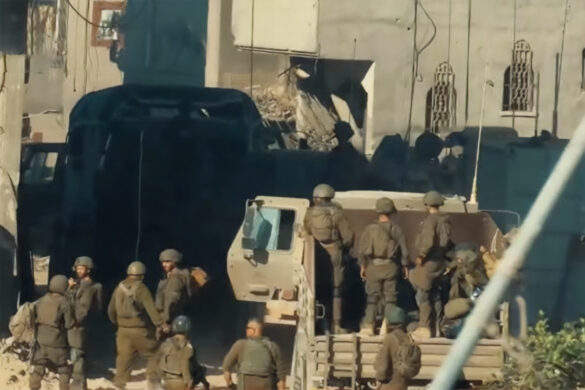International newspapers paid attention to the rapid field developments in the Syrian scene, in addition to the Israeli occupation army’s continuation of genocide in the Gaza Strip, according to human rights organizations, and fears of the collapse of the ceasefire agreement in Lebanon.
The British Independent newspaper said that the Syrian armed opposition’s control of the city of Hama represents a new blow to Syrian President Bashar al-Assad.
The newspaper added that the fall of Hama “sends shock messages towards Damascus and raises fears of a greater advance by the opposition forces,” noting that “after controlling Hama, it will be difficult to organize a counterattack quickly.”
A report in the British newspaper The Times believes that the city of Homs has become the last step for the Syrian opposition forces before reaching the capital, Damascus.
The report notes that the opposition forces took control of Hama despite Russian support with air strikes, but at the same time the report ruled out “both Iran and Russia allowing the opposition to advance towards Damascus without violent fighting.”
The French newspaper Le Monde highlighted Amnesty International’s description of what is happening in the Gaza Strip as genocide, noting that it is the fourth human rights report of its kind issued by international bodies whose teams were closely informed of the dire situation in Gaza as a result of Israel’s policy of managing the war.
In turn, the Israeli newspaper Jerusalem Post published the results of a poll showing that 57% of Israelis believe that the government is not doing everything in its power to return prisoners detained in Gaza.
The poll – conducted by the Israeli Democracy Institute – found that the percentage of right-wing supporters of how the government is managing the prisoner file declined compared to another poll last March, while the percentages of supporters from the center and left came below 20%.
An article in the Israeli newspaper Haaretz believes that fears of the failure of the ceasefire between Israel and Lebanon are linked to the long timetable that was set to complete the agreement.
According to the article, the possibility of clashes erupting between Israel and Hezbollah is increasing every day, “and may lead to an all-out war given the number of violations reported by both sides since the ceasefire was announced.”




